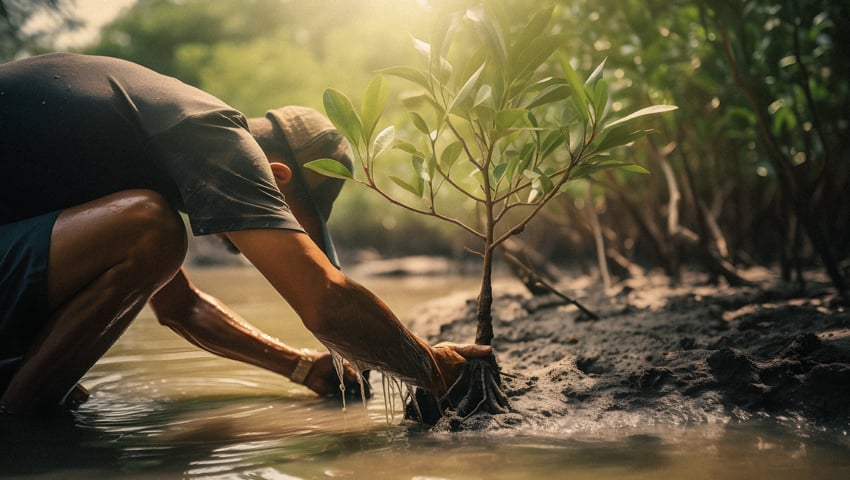The Real Farming Trust says that pressure to capitalise on nature, though carbon and nature offsetting, is perpetuating business as usual in a broken system, and will not fix the climate crisis.
The Trust’s news team reports that in March, more than 80 civil society organisations and academics working on climate action called on the EU to reject voluntary carbon credit schemes as a solution to the climate crisis, after it was revealed that 90% of forest carbon credits sold by the certifier, Verra, are largely worthless.
They say that “This is not news to many farming and Indigenous communities in the global south, where carbon credit schemes have been operating since at least the early 1990s. These schemes are not just flawed as climate solutions; they have perpetrated devastating human rights abuses and land grabs. In Uganda, a forest carbon ‘restoration’ scheme run by Dutch NGO Face the Future evicted thousands of people using paramilitary rangers and soldiers so the forest could be ring-fenced for carbon credits. In East Africa, pastoralist Indigenous Samburu, Borana and Rendille people are under threat from the Northern Rangeland Trust’s (NRT) carbon offset project.”
“Community-led conservation must be embraced,” they say, “and green colonialism rejected.”
The news team says that “After decades of unregulated carbon investments, it’s increasingly obvious that offsetting is fundamentally flawed, and enables companies to market their products or services as ‘carbon neutral’ without making carbon reductions in their day-to-day operations. Offsetting threatens, and has already caused, a new wave of land grabs and violent evictions in order to turn nature and soil carbon into financial assets.
“Farming carbon instead of producing food could see UK farmers locked into long contracts, and out of their land, for 30 years or more – but carbon needs to be stored for at least 100 years to make a difference to global warming. Carbon and biodiversity credits have been sold as a simple solution to a complex problem, and they allow corporates to continue emitting – one reason why a green marketing gloss is usually required. Nature is complex and can’t be measured in a way that fits the prevailing economic or political paradigms.”
The news team is particularly scathing about the phrase ‘nature-based solutions’, which they say is used as a catch-all to describe the many roles that nature ‘performs’.
“In farming, genuine nature-based solutions include improving soil health, encouraging pollinators, managing pests and diseases without using chemicals, and increasing the diversity of crops. All of which requires farming to move towards agroecological systems – farming with, instead of against, nature.”
The writers note the so-called ‘green rush’ in Scotland. “There are now close to 800 carbon investment projects in Scotland. Land is being bought for carbon storage; large companies and landowners have the financial muscle to purchase big swathes for tree-planting and peat restoration, pushing land prices up. Often, the buyers don’t live in Scotland. In Perthshire, 10,500 acres of land has just gone on the market for offers over £105 million.
“The Scottish Land Commission is now warning that family farms and local communities are being shut out of the rural land market. In a new discussion paper, Community Land Scotland warns the carbon rush could ‘land Scotland’s rural communities with a fresh driver of upheaval, disempowerment and depopulation’.
The Trust’s news team also questions the concept of “no net loss” of biodiversity, or “biodiversity net gain”. They say that “A prime example of this is the High Speed 2 rail project. By selling the idea of mitigation in the form of ‘no net loss’, developers sought to allay concerns that nature is being obliterated. It essentially boils down to a PR exercise: yes, we are destroying this ancient woodland, but we’ll plant some new trees up the road to make up for it. The idea that the interconnected nature of a woodland where species have co-evolved and co-existed for hundreds of years can be adequately replaced in our lifetimes is offensive and fundamentally wrong.”
They criticise the way that HS2 has allegedly “undervalued existing nature and overvaluing its compensation measures. There will be nearly eight times more biodiversity loss than HS2 Ltd accounted for. They left out watercourses, ponds and trees; well-established species-rich hedgerows were valued lower than the new hedgerows they plan to plant.”
